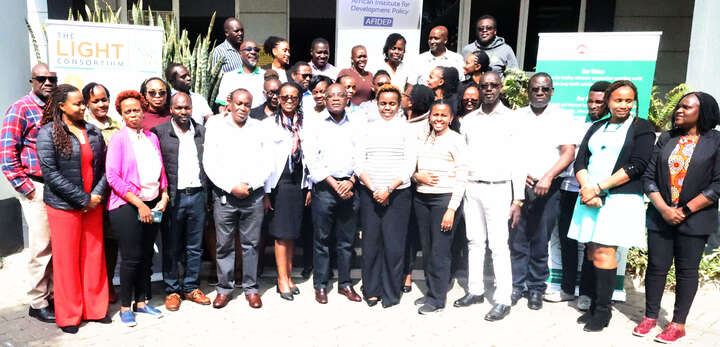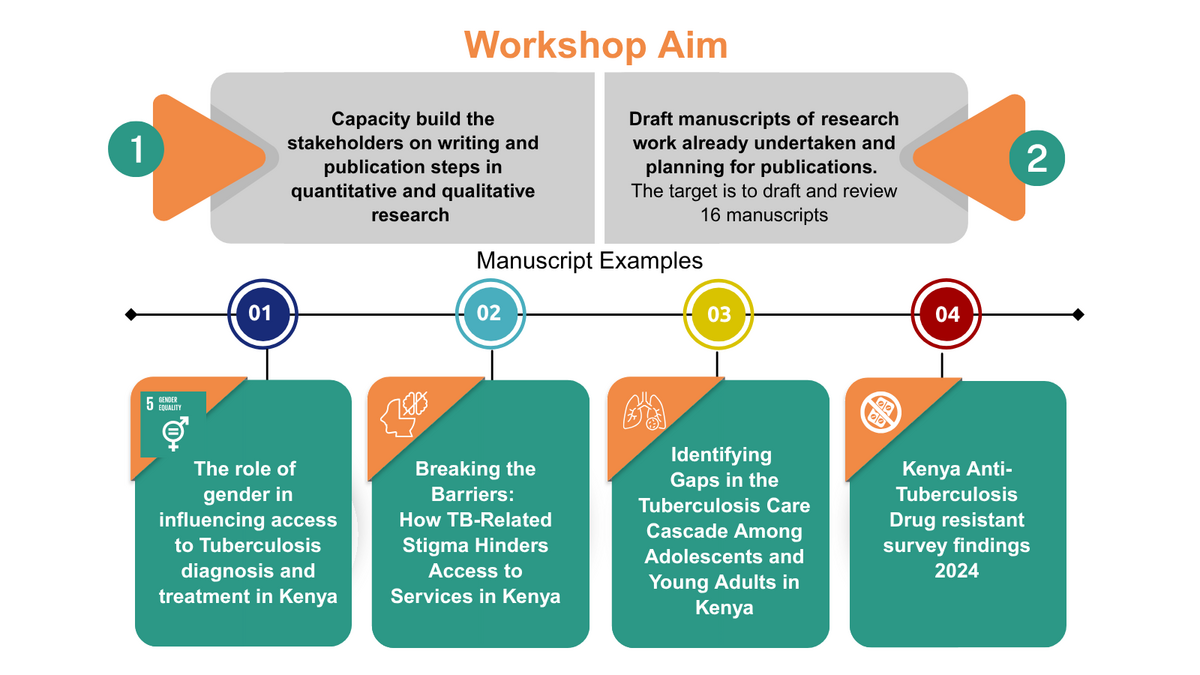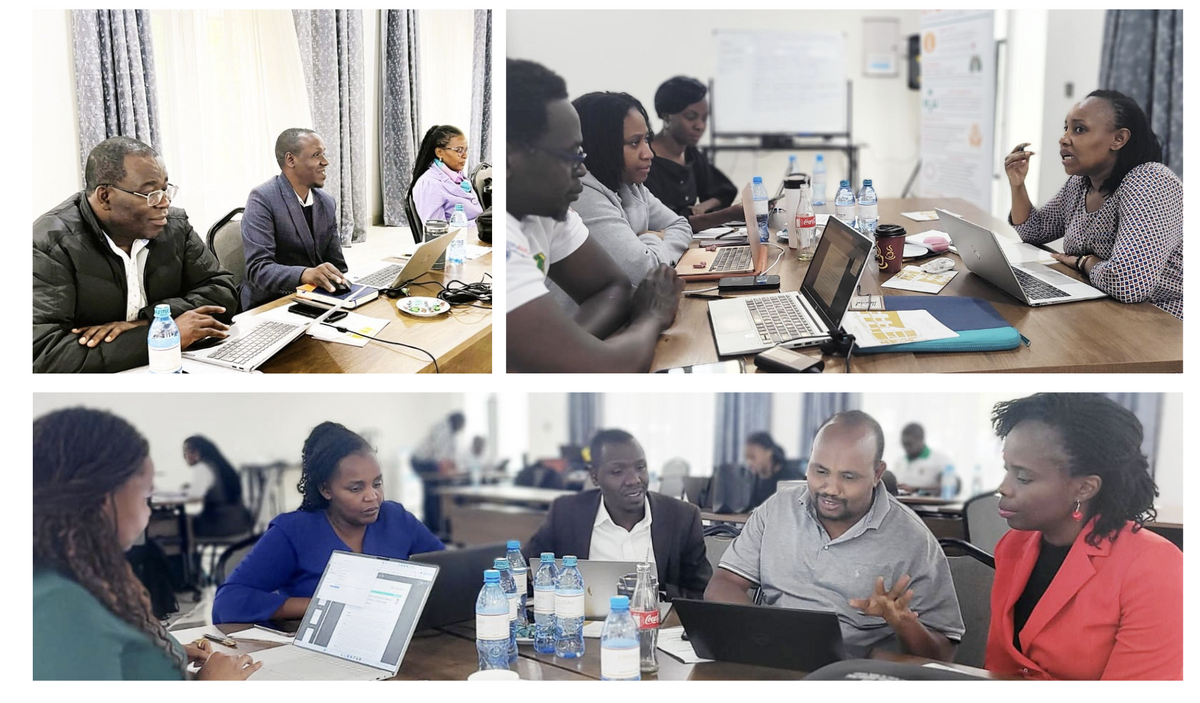
One of the LIGHT Consortium’s core commitments is to strengthen research capacity of individuals, partner institutions, and multi-stakeholder networks to generate, adapt, communicate, and use evidence effectively. In line with this goal, LIGHT partners in Kenya, AFIDEP and the Respiratory Society of Kenya (ReSoK), conducted a week-long Scientific Manuscript Writing Workshop in Naivasha (14-18 July 2025).
Hosted by ReSoK, the workshop brought together participants from the Ministry of Health’s Division of National Tuberculosis, Leprosy and Lung Disease Program (NTLD-P), county governments, and leading lung health organisations in Kenya, including Amref Health Africa, Centre for Health Solutions–Kenya, Clinton Health Access Initiative, Kenya Medical Research Institute, and Population Services Kenya.
Opening the workshop on behalf of Dr Immaculate Kathure, Head of NTLD-P, Mr. Aiban Ronoh (Head of Monitoring, Evaluation and Research at NTLD-P) emphasised the Ministry’s commitment to a national, inclusive, and demand-driven TB research agenda. He highlighted that strengthening the country’s capacity to generate and publish high-quality evidence is essential for advancing TB policy and programme implementation.
As part of this vision, NTLD-P initiated the TB and Lung Health Research Taskforce in January 2025 - bringing on board LIGHT partners, AFIDEP and ReSoK, as committee members - to align and coordinate research efforts across the sector.
Prof. Jeremiah Chakaya, ReSoK’s CEO and LIGHT Consortium Programme Team Lead, presented an overview of LIGHT’s research focus - addressing gendered dimensions of TB, with an emphasis on men, adolescents, and young adults who not only bare a higher burden of TB and higher rates of undesirable treatment outcomes, but also remain underserved in TB care. He highlighted the importance of adopting age and gender-responsive TB prevention and care policies and strategies to accelerate an effective response to TB. He further emphasised the importance of scientific publications as a means to inform policies, improve practices, and ensure evidence is translated into real-world impact.
The workshop also featured a virtual session by Dr Beate Ringwald from the LIGHT Consortium, who led an interactive discussion on publishing qualitative research finidngs. Participants engaged actively, asking questions about the number of quotes to include, how to demonstrate reflexivity and trustworthiness, and common pitfalls in qualitative documentation.

As part of Pillar 3 of the WHO End TB Strategy, which calls for intensified research and innovation, this workshop marks a critical step in building national capacity to document and disseminate TB research. It also supports LIGHT’s broader aim to bridge the gap between evidence and policy through evidence-informed decision-making.
With a packed agenda of peer learning, writing sessions, engaging discussions and collaborative feedback, the workshop was intensive and inspiring.

The LIGHT Consortium remains committed to leaving no one affected by TB behind by strengtehning research capacity and driving gender-responsive TB solutions across sub-Saharan Africa.
